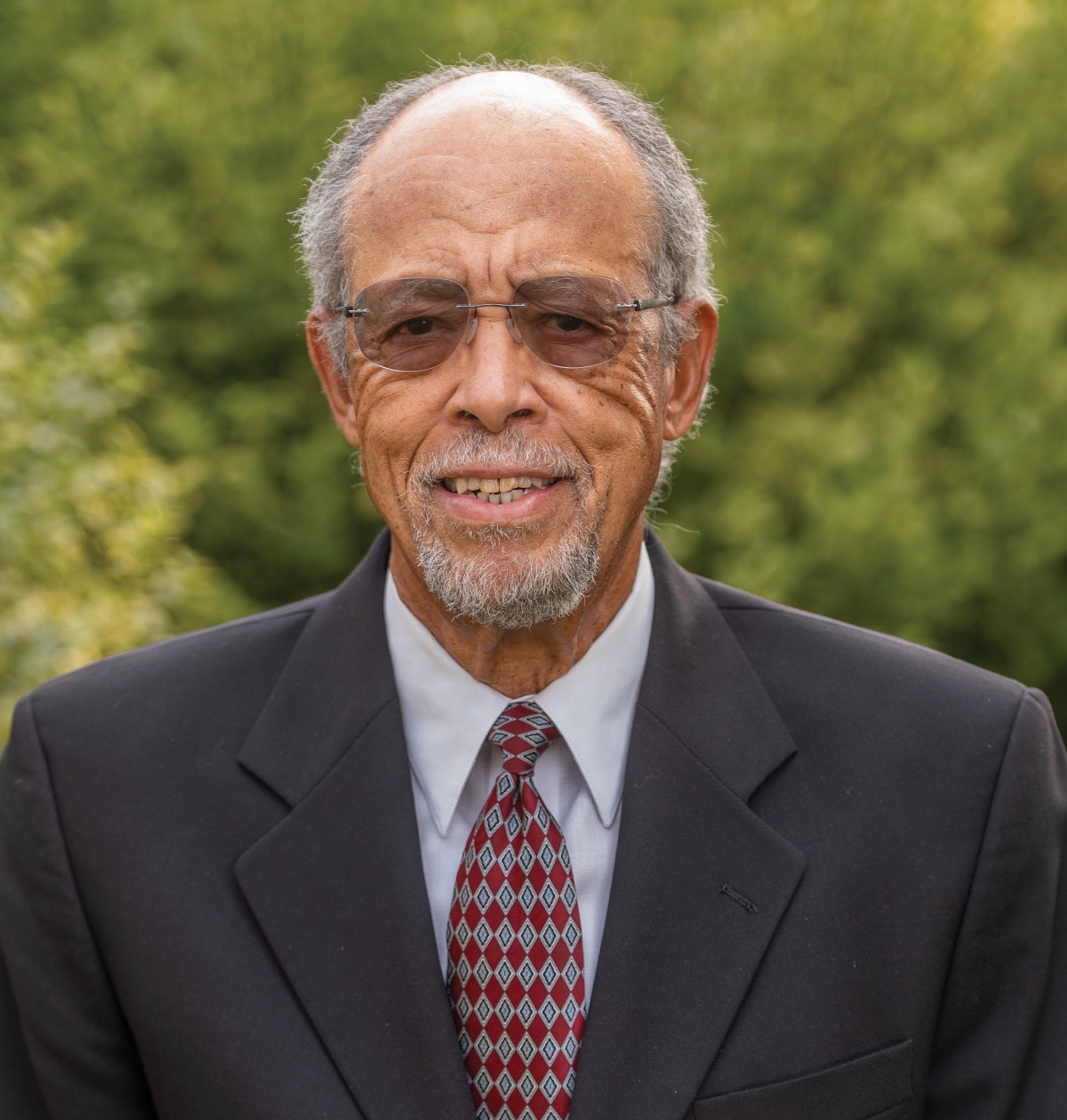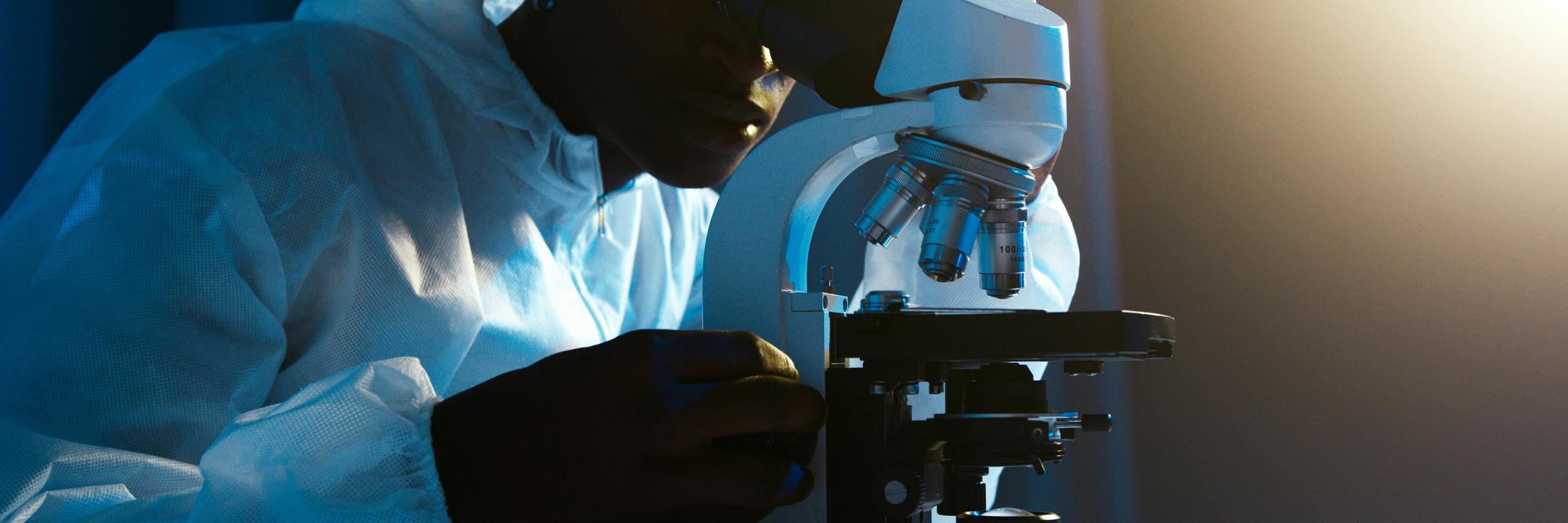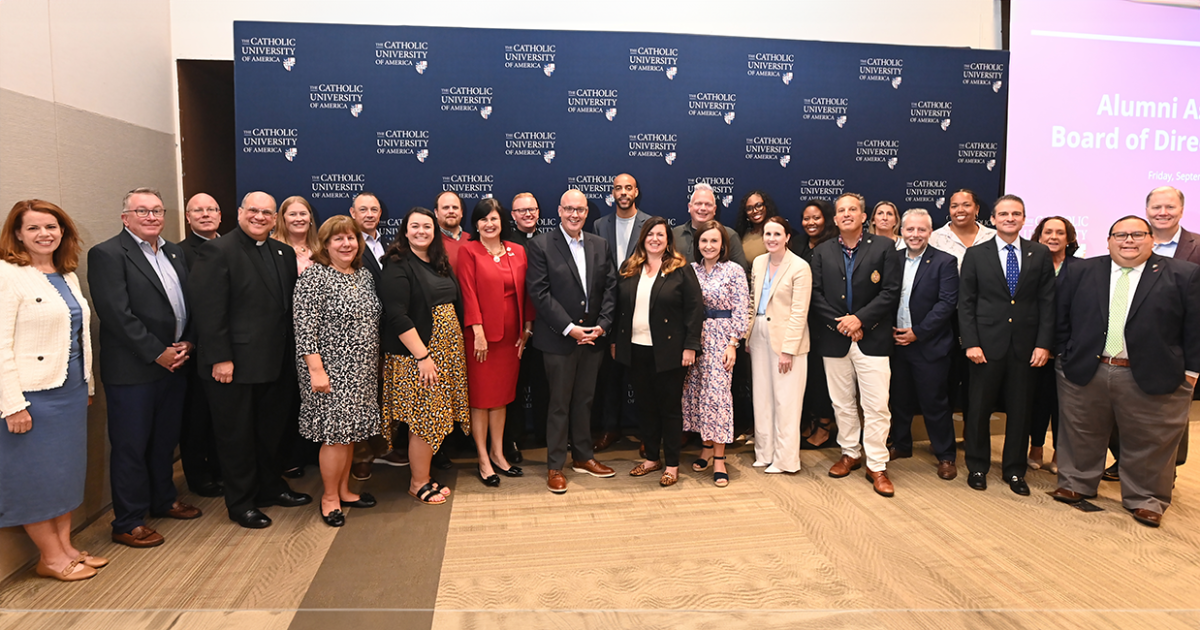As The Catholic University of America celebrates its ascension to Carnegie R-1 research status—a designation that marks the highest level of research activity in American higher education—it is fitting to reflect on the achievements of its alumni who embody the spirit of perseverance and academic excellence. One such alumnus is William M. Jackson Jr., Ph.D. 1962, an internationally renowned chemist, mentor, and trailblazer.

Jackson’s journey as a Black scientist in the 1960s to the forefront of chemical research underscores both the barriers he overcame and the role Catholic University played in launching his career.
“The most memorable moment for me was in November of 1961, when the committee told me I had passed the final oral exam for my Ph.D. in chemistry,” Jackson recalls. “I had wanted to be a scientist for as long as I could remember.”
That moment marked the culmination of years of hard work, sacrifice, and dedication. It also represented a breakthrough—not just personally, but historically. Catholic University, he says, offered him a path forward.
“I learned about my love for chemistry at Morehouse College,” he explains, “but I learned to be a chemist at Catholic University.”
Jackson credits the University with providing both rigorous academic training and a supportive environment. It was a professor from Catholic who helped him land a formative position at a government research institution. But it wasn’t just the faculty who made a difference.
“Throughout my time, I was supported by my fellow students who were there. I could spend an hour talking about all the other people and how they helped me.”
Now an emeritus professor at the University of California, Davis, and the subject of numerous tributes, including a special issue of The Journal of Physical Chemistry, Jackson remains passionate about mentoring the next generation of scientists.
“If I had an audience of young scientists, I would tell them the same thing I’ve told all young Ph.D.s,” he says. “First, pursue whatever you get excited from, because you have to work all your life and you want to work doing something you really like to do. And two, work as hard as you can, because all of you have the ability to achieve your goals, if you set your mind to it.”
His advice is as practical as it is inspiring. A lifelong sports fan, Jackson draws parallels between the discipline required in science and the commitment seen in elite athletes.
“The best example that comes to mind is NFL quarterback Jayden Daniels. He exhibits the kind of commitment that you need to have in order to reach the goals that you want to achieve.”
Jackson remains a proud alumnus and believes strongly in the power of alumni engagement.
“It’s important for the alumni to support the University,” he says. “I wouldn’t be where I am without Catholic University, and I will admit that I am where I am because it accepted me as a Black man from the South with no money. Five years later, I walked out with a Ph.D. in chemistry and a strong background in physics that allowed me to achieve my dreams.”
William M. Jackson Jr.'s story is more than a narrative of personal success—it is a testament to resilience, mentorship, and the enduring value of higher education. As Catholic University embraces its new chapter as an R-1 institution, the legacy of alumni like Jackson reminds us of what is possible when determination meets opportunity.
Influential Scientists
In reflecting on his time at Catholic University, William M. Jackson Jr. spoke with admiration about many of his instructors and peers—fellow scholars who, like him, pursued excellence in science and left a lasting impact on their fields. These distinguished individuals are part of the University’s rich legacy in STEM and continue to inspire new generations of scientists, educators, and innovators.
Victor McCrary, B.A. 1978, Ph.D.
A dynamic leader in science and technology, Victor McCrary has built a distinguished career bridging research, academia, and national science policy. A graduate of Catholic University, McCrary has served in high-profile roles, including vice president for research at the University of the District of Columbia. He currently serves as the vice chair on the National Science Board, advising federal agencies on science and engineering policy. A staunch advocate for diversity in STEM, he is also a former national president of the National Organization for the Professional Advancement of Black Chemists and Chemical Engineers.
Howard J. Foster, Ph.D. 1965
Howard Foster earned his Ph.D. in physics from Catholic University in 1965 and became a pillar of academic leadership at Alabama A&M University, where he chaired the Department of Physics and Mathematics. His dedication to teaching and mentorship helped shape the scientific acumen of countless students, particularly at Historically Black Colleges and Universities (HBCUs).
Virginia Frances Griffing, Ph.D. 1947
A true trailblazer, Virginia Frances Griffing made history as the first woman to join the faculty of Catholic University’s physics department. Later, she became the first female lay faculty member in the chemistry department. Earning her doctorate in 1947, Griffing helped break gender barriers in the sciences at a time when few women held such positions, leaving a powerful legacy for women in STEM.
Harry Lee Morrison, B.A. 1955, Ph.D. 1960
Harry Lee Morrison was a pioneering theoretical physicist who broke new ground as the first African American faculty member in physics at the University of California, Berkeley. Earning both his B.A. and Ph.D. from Catholic University, Morrison became a highly respected scholar whose career helped open doors for future generations of physicists.
William A. Lester Jr., Ph.D. 1964
William A. Lester Jr. is a theoretical chemist whose groundbreaking work in quantum Monte Carlo methods and molecular collision theory advanced our understanding of molecular and electronic structures. After earning his Ph.D. at Catholic University, he later directed the National Resource for Computation in Chemistry and led the nation’s first umbrella group for chemists, which pioneered new computation methodologies. A committed mentor, Lester has shaped generations of scientists through academia and national programs.
C. Stuart Bowyer, Ph.D. 1965
Charles Stuart Bowyer was a pioneering astrophysicist who opened new frontiers in extreme ultraviolet (EUV) astronomy by leading the team that launched the EUV Explorer satellite in 1992. A Catholic University alumnus, he also founded the Berkeley Searches for Extraterrestrial Intelligence program, advancing the search for extraterrestrial intelligence. Through mentorship and innovative research, Bowyer inspired generations of astronomers.
Karl Herzfeld, Ph.D.
Karl F. Herzfeld, a distinguished physicist and Catholic intellectual, made foundational contributions to statistical mechanics, molecular acoustics, and the physics of gases and liquids. A member of the National Academy of Sciences, he advanced scientific understanding while emphasizing moral responsibility in research. At The Catholic University of America, he mentored generations of young scientists, shaping both their intellectual and ethical development.
Francis Rice, D.Sc.
Francis Rice, an influential 20th-century physicist, helped establish modern acoustic research through his pioneering work in physical acoustics at The Catholic University of America. His contributions to high-intensity sound wave studies laid critical groundwork for sonar and ultrasonic technologies. A dedicated mentor, Rice shaped the next generation of scientists with a focus on rigorous experimentation and ethical responsibility. His impact earned him a Nobel Prize nomination in 1951.
Published on: Monday, June 16, 2025
Tags: Alumni Association, Notable Alumni, Chemistry



